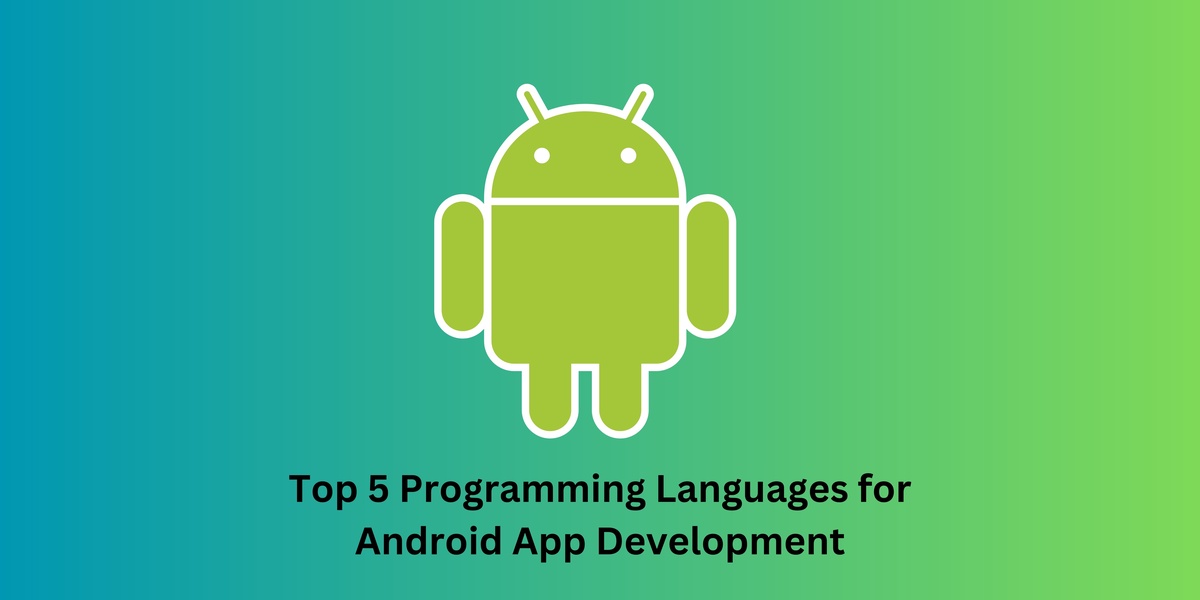In the contemporary technology-driven landscape, proficiency in Android app development stands as a critical asset for both developers and businesses aiming to access the expansive mobile user demographic.
Given the staggering count of over 2.5 billion active devices every month on a global scale, the Android platform offers an extraordinary avenue to connect with a worldwide user base.
Yet, the selection of an appropriate programming language holds paramount importance for the triumph and effectiveness of your Android app development endeavor. This becomes even more relevant when considering the expertise of an Android app development company.
In this blog post, we'll explore the top 5 programming languages that are widely used for Android app development.
1. Java: The Classic Choice for Android App Development
Java has been the primary programming language for Android app development since the platform's inception. Known for its reliability, versatility, and extensive libraries, Java provides a robust framework for building Android applications. Its object-oriented nature simplifies code organization and maintenance, making it an ideal choice for both beginners and experienced developers in the realm of Android app development.
When it comes to Android app development, Java's longevity and rich ecosystem continue to make it a preferred language. Despite the emergence of other languages, many apps on the Google Play Store are still built using Java.
2. Kotlin: The Modern and Preferred Language
Kotlin, introduced by JetBrains, has gained significant traction as the preferred programming language for Android app development. It offers concise syntax, null safety, and enhanced expressiveness, leading to reduced code verbosity and increased productivity. Kotlin is fully interoperable with Java, allowing developers to seamlessly integrate it into existing projects.
Kotlin's features, such as extension functions and coroutines, simplify complex tasks in Android app development. Its smooth learning curve and strong community support have led to a swift adoption rate, making it a prominent player in the Android development landscape.
3. C#: Unleashing the Potential with Xamarin
For developers familiar with C# and the .NET framework, Xamarin offers a powerful solution for Android app development. Xamarin allows developers to write cross-platform apps using C# while sharing a significant portion of code across multiple platforms, including Android. This approach ensures consistent functionality and reduces development time.
With Xamarin, developers can leverage their C# skills to create feature-rich Android apps, maximizing code reuse without compromising on performance. This makes it an excellent choice for enterprises aiming to maintain a single codebase for multiple platforms.
4. React Native: JavaScript for Native Android Apps
JavaScript enthusiasts can dive into Android app development using React Native, a popular framework developed by Facebook. Leveraging JavaScript and React, React Native enables developers to build native-like apps with a single codebase. While it's not a traditional programming language, React Native's approach has gained traction due to its efficiency in creating engaging and responsive Android applications.
Developers familiar with web development and JavaScript can transition to React Native for Android app development, capitalizing on their existing skills while exploring the world of mobile apps.
5. C++: Harnessing Performance and Control
C++ is a powerful programming language that offers unparalleled control and performance. While it might not be the first choice for beginners, experienced developers can leverage C++ for Android app development when performance optimization is a critical factor. The Android Native Development Kit (NDK) allows developers to integrate C++ code into their Android projects, particularly for resource-intensive tasks like gaming or multimedia applications.
Conclusion
In the dynamic landscape of Android app development, the choice of programming language plays a pivotal role in determining the success and efficiency of your projects. Whether you opt for the classic reliability of Java, the modernity of Kotlin, the versatility of C#, the cross-platform potential of React Native, or the performance-centric approach of C++, each language brings its unique advantages to the table.
Ultimately, the world of Android app development thrives on innovation and user-centric experiences. By carefully selecting the right programming language and considering to hire android app developer, you can confidently embark on your Android app journey, creating impactful solutions that leave a lasting impression on users and contribute to the ever-evolving realm of mobile technology.
Read Also:
Top Mobile App Development Software Trends
The Fundamentals of Digital Product Development
Best Practices for Developing a Successful Enterprise Mobility Strategy


No comments yet